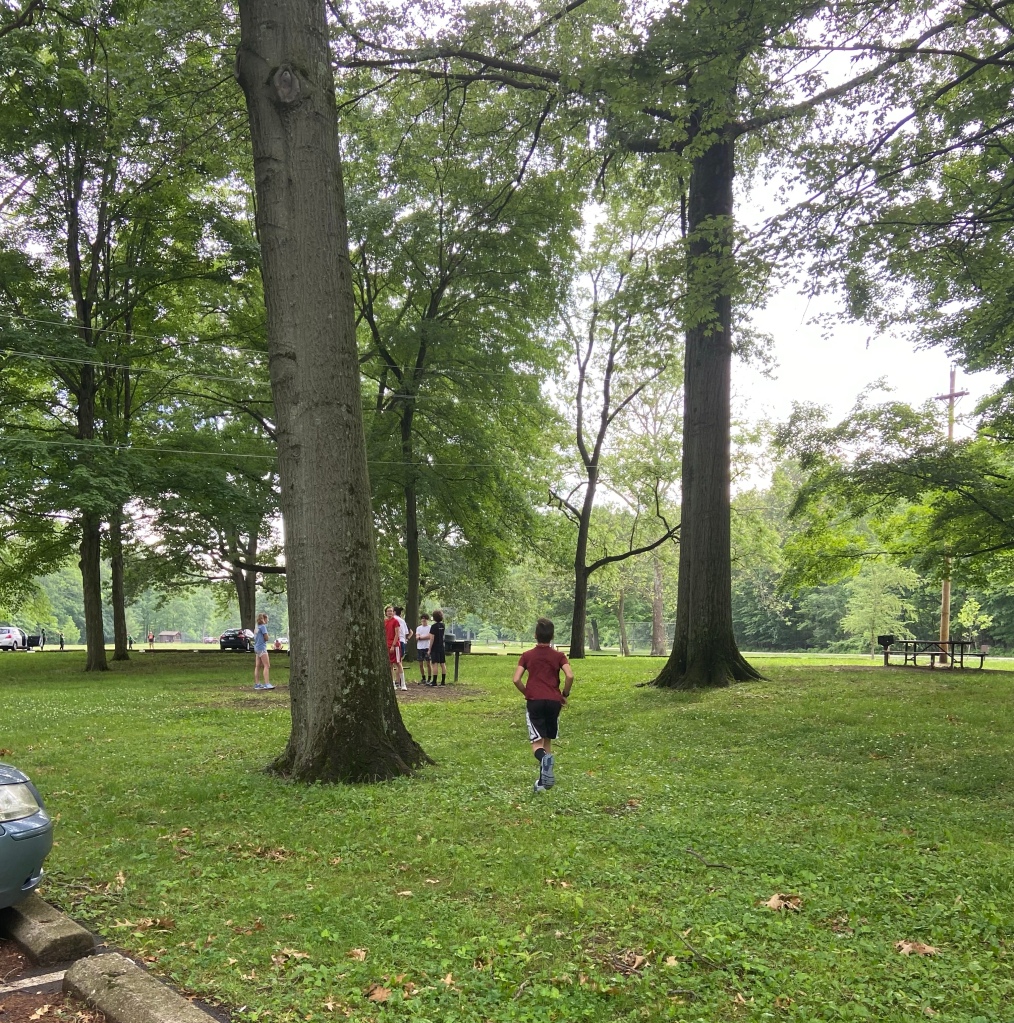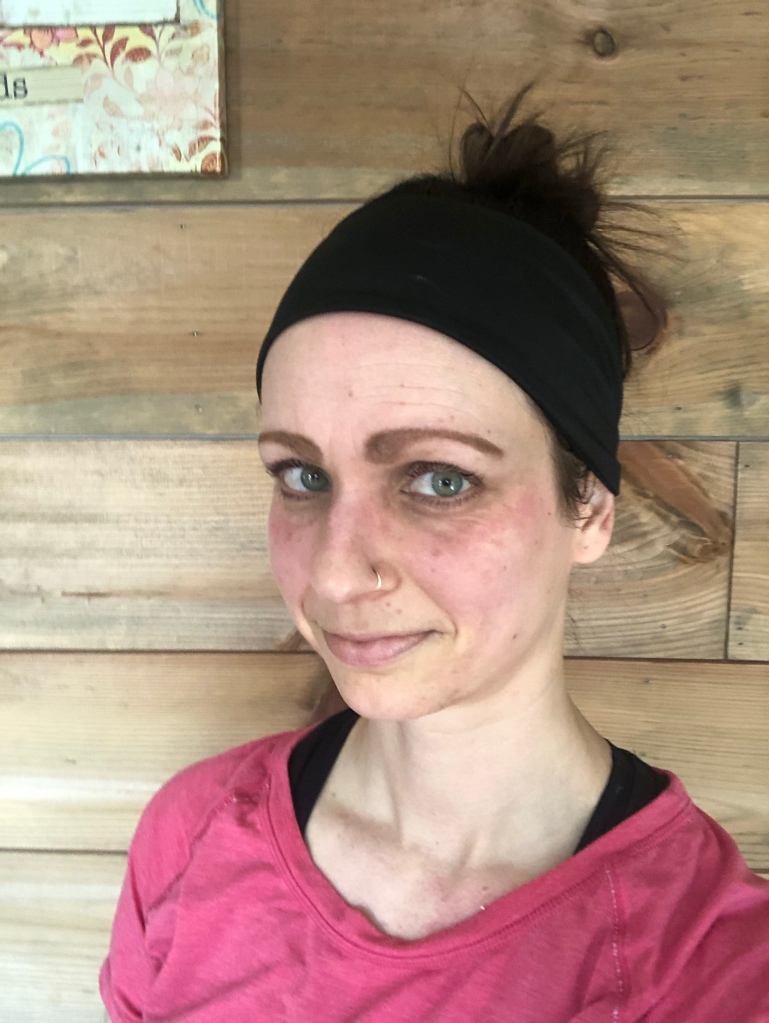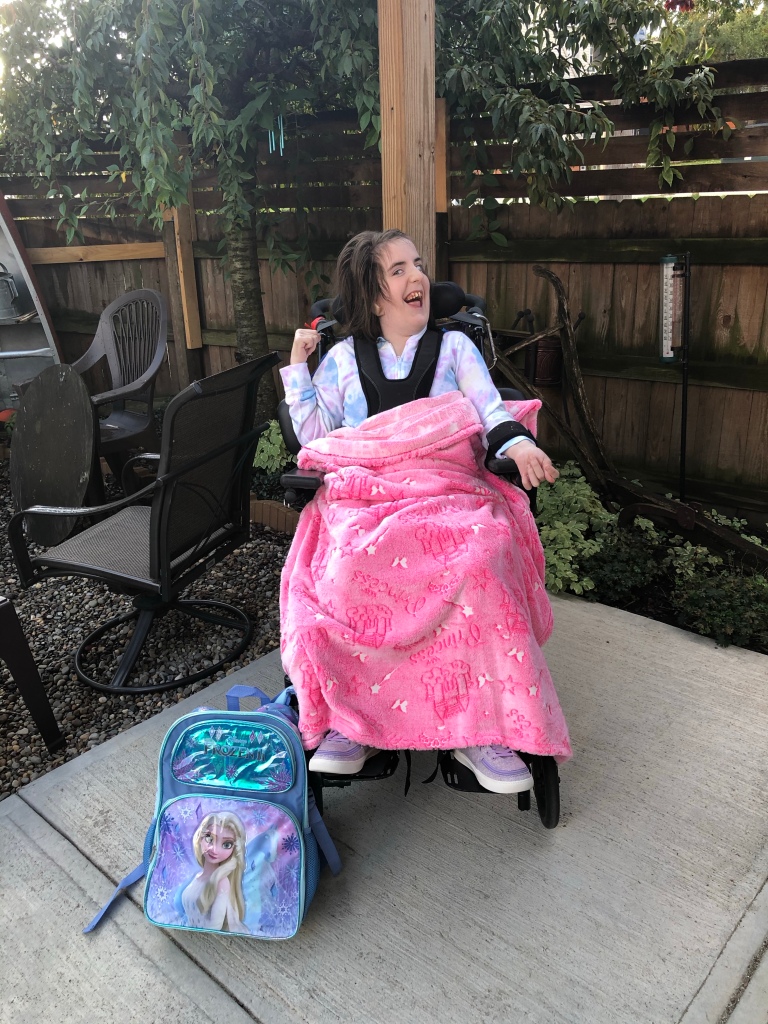Because for some reason we tend to leave weird things on the table… (see previous post on socks)
Pad Thai was for dinner, and I needed to make it tonight before the bean sprouts went bad. It was on the meal planner for last week but because #life, and me forgetting to pick up one key ingredient, it got pushed back. And even though I was exhausted by the time dinner time rolled around, I would make that Pad Thai if my life depended on it! Why? Because: I had tried making it more than once and now that I finally had all the ingredients I could not risk one of them going bad and so, I made the Pad Thai. It was really good Pad Thai if I do say so myself. (My son also said so which was reassuring.) If I had invited you over for dinner for some really excellent Pad Thai though, you may have found yourself squeamish and scrambling to find an excuse to walk back out the door when you saw it: a urological catheter on the table. Now, mind you- it was not a used one. It was lying neatly in its sterile packaging, but the fact remains that it was…a catheter.
I imagine not many, if any at all reading this post have ever sat down to dinner and found yourself moving a catheter off of the table. (And if you have- maybe we should be friends?) Anyhow, as much as I am used to seeing medical supplies and equipment around our house because of our medically complex child, when I realized there was a catheter on the table when I went to get the dinner on the table, it did in fact bother me- in two ways:
First, I realized how out of place this it’s was and the dinner table is really the last place it should be.
Second, I had a moment like others that I have from time to time where I’m abruptly hit with the reality of our lives and how far away it is from the typical home life of other people.
It isn’t something I dwell on a lot anymore, mostly because I do not have the capacity in my brain to stay there and think of all the ways we are not like most other families. But when these moments do creep up unexpectedly, it is difficult for me to recover quickly. And I will usually have to spend more than a few minutes lamenting and grieving certain circumstances that exist.
See, if you had in fact come over for dinner and seen a catheter on the table, it probably would have been incredibly awkward for you and not something you would voluntarily commented on. Or, maybe you would have not even realized what it was because you are not familiar with such things. Either way though, it’s weird. Not normal. And who knows what things you may have thought to yourself:
“I know they have a medically complex child but couldn’t they at least put the things like that away before company arrives?” Or, “Well that is super awkward…please don’t make me look at it or talk about it…please just get it off the table…look away, pretend you don’t see it.”
Because I mean really, what would you say about a urinary catheter on the dinner table? Exactly. But what you may not have realized is what happened in the hours and week leading up to the urinary catheter on the dinner table…
People often ask if I work or what I do during the day. I kind of want to laugh, sometimes cry, but ultimately I have really no good answer. Because how do you concisely explain that your typical day at home with your medically complex child who is severely disabled involves so much more than merely caretaking for her? The truth is I spend an absurd amount of time on the phone calling medical supply companies, pharmacies, and doctors offices often to fix or correct mistakes they have made, and of course to actually just place orders. (We currently have 2 pharmacies and 5 medical supply companies to supply everything she needs on a daily basis) I’m scheduling or rescheduling one of the hundreds of yearly doctor appointments, or trying to make sure I don’t forget to refill a medication that her life depends on. #nopressure I’m logging her fluid intake/output or making lists and notes of what to talk to medical professionals about, and trying to figure out why a random pressure sore keeps reappearing. Just to name a few… So I guess it is kind of like being a nurse, an administrator, and a home health aide that never gets to clock out.
But most recently I’ve had to clean up urinary accidents that not even the most absorbent adult diapers, underpads, extra underpads, and pants could contain, because my incontinent 16 year old has a neurogenic bladder meaning she has a tendency to hold onto things much longer than she should, giving me yet another reason to have our carpets cleaned in the near future. (Why, oh why did we decide to get the carpets?!?!…)
Because of this getting worse, her doctor has recommended we go back to using catheters during the daytime help drain her bladder effectively. So, I’ve spend the last few week days on the phone with dr offices and medical supply companies because not all of them will provide exactly what we need. And then going through 5 boxes full of over 10 different samples mailed to us of catheters and kits to decide what works for her. All while trying to emotionally absorb that this is another new reality and yet another piece to caretaking to manage and work into our daily routine. #NBD But alas, I did decide which one and what kit would work the best for her and I took them from her room when I called the company so I would have the exact name and item number to give them and to tell them the exciting news that I had come to a decision. And after ordering, I must have walked through the dining room and absent mindedly laid the catheter and kit on the table. (It was also right after I made like the 27th phone call about the outdoor lift replacement. You know, the one that broke back in February? #firedept Yeah, so maybe we will have our new lift by Halloween.)
And what you also would not have realized is that 2 hours before dinner I was cleaning our carpets yet again from another type of accident after I had to get her cleaned up again (right after her shower no less) and wash her wheelchair cushions, and basically decide if the soiled clothes were even worth keeping (which is really not a question because Oxiclean laundry powder is more magical than David Blaine and they should give me royalties for all of the advertising I do for them).
So tonight, had you come over for Pad Thai and seen a catheter on the table, I’m not sure exactly what your internal response would have been. Perhaps you would have surprised me by asking why we have catheters in the first place! Which you may be surprised to actually know: that that would have been the most gracious, empathetic response you could have had. Because it would have allowed you to enter into our very untypical lives.
So often I think one of the most difficult parts of this journey is not being able to share it with people openly. Matter of factly. Without reservations. And because you automatically filter what you talk about unless you are asked specifically about such things, it really messes with you. Like you have this secret life that you don’t necessary want to keep secret. But you can’t just show up to an event or dinner party, or any social event for that matter and just start talking about: urinary catheters. Or gastrostomy tubes. Like, on what planet is that socially acceptable?? But here’s the thing- it isn’t socially acceptable. Because it isn’t comfortable. Or at the end of the day there are plenty who just don’t care. Because they don’t have to. And that may sound harsh but it is the truth.
I have taken the liberty of labeling myself the biggest fan of Curt Thompson M.D. He is a Christian psychiatrist who has written the books Anatomy of the Soul and Soul of Shame. He also now has a podcast called “Being Known.” It is SO good. He says things like “neuroplasticity” and “prefrontal cortex.” (I practice saying such words because they are fun to casually weave them into a conversation like I know what I’m talking about.) Anyway, one of the main things he speaks about is how we were created for community and the importance of sharing our stories with one another. And how there is actually a physiological reaction in our brains when people fully listen and engage with our story as we talk. It involves empathy.
From his podcast Being Known Curt talks about how to respond when someone is being vulnerable:
We don’t have a lot of practice with vulnerability which means we don’t have a lot of practice paying attention to who we actually are. And because of that, we don’t have a lot of practice with our own vulnerability. When someone shares something with you, our lack of practice with vulnerability evokes all kinds of feelings in the listener. We end up responding with, “What can we do to fix this?” or Here let me get you a tissue.” “So do you want a burger?” When someone is vulnerable it evokes a range of things within us.
Our options are – quickly move on to another topic, I immediately want to fix what seems to be the problem and I begin to analyze what they are saying, or I want to act to deflect and distract or to fix mostly as a way to regulate my own distress.
When people are being vulnerable with us, what they mostly need from us is our empathic presence. They just need us to be present and with them. It means to comfortable and carefully look them in the eye, be aware of our body posture to send the message that the story they are telling us is welcome in this space. I also want to notice that I want to be curious about what they are saying by asking more about it or asking if there is more they want to say, also validate what they are feeling by saying: “Gosh that sounds really hard…that sounds really painful.”
This episode really resonated with me because it made more sense of why our family, and other families like ours tend to feel so isolated and overlooked. Our society as a whole has not had much practice in empathy and vulnerability, and it is not something we are quick to move towards. And yet- vulnerability is the very thing that brings us deeper into relationships and has the ability to help us form deep, meaningful relationships! Because we feel known. But in our specific circumstance as we have to deal with really difficult things on a regular basis, it is as though our story is just too heavy. Too long. Too uncomfortable to get close to. And ultimately people feel hopeless because it is not something that cannot be fixed, and the permanence of our situation makes it all the more overwhelming to try to step into and understand. And so instead of pressing in and pushing through the initial discomfort of the unknown, in order to help bring connection and love into a relationship with our family, so often people will choose to deflect or ‘buy a burger’ so-to-speak, because that is the quickest, cleanest fix. And an out. It is no wonder why ourselves and so many families and like ours struggle with our own mental health outside of the average stressors…
There have been a few times over the years that I have been asked how to better connect with our family or what do we need most. And across the board I answer the same every time: ask more questions. Sit with us. I’m not saying meals, and coffee, and cards are not encouraging. (Coffee especially is never not encouraging, by the way) Those things mean so much and help us to know we are not forgotten. But at the end of the day, without actual human connection and having people enter into our story, it becomes a very lonely place. We don’t expect that you will entirely understand, as you cannot fully walk in our shoes. But as Curt mentioned, the empathetic presence is SO powerful and I can vouch for how meaningful it can be. It breaks down walls and barriers and brings people together in a much deeper way. And as Curt would also say – it can positively affect the neuroplasticity in our brains when we connect in this way!
So I’m guessing if any of you get invited over for dinner to our house now, you may hesitate because of what you may find on the table. And honestly at this point I just can’t make any promises. But maybe you won’t hesitate because you will want to practice your empathetic presence amongst catheters and gastronomy tubes!
Either way, I hope you will decide to come if you are invited. I know we would love to have you here! ❤️




